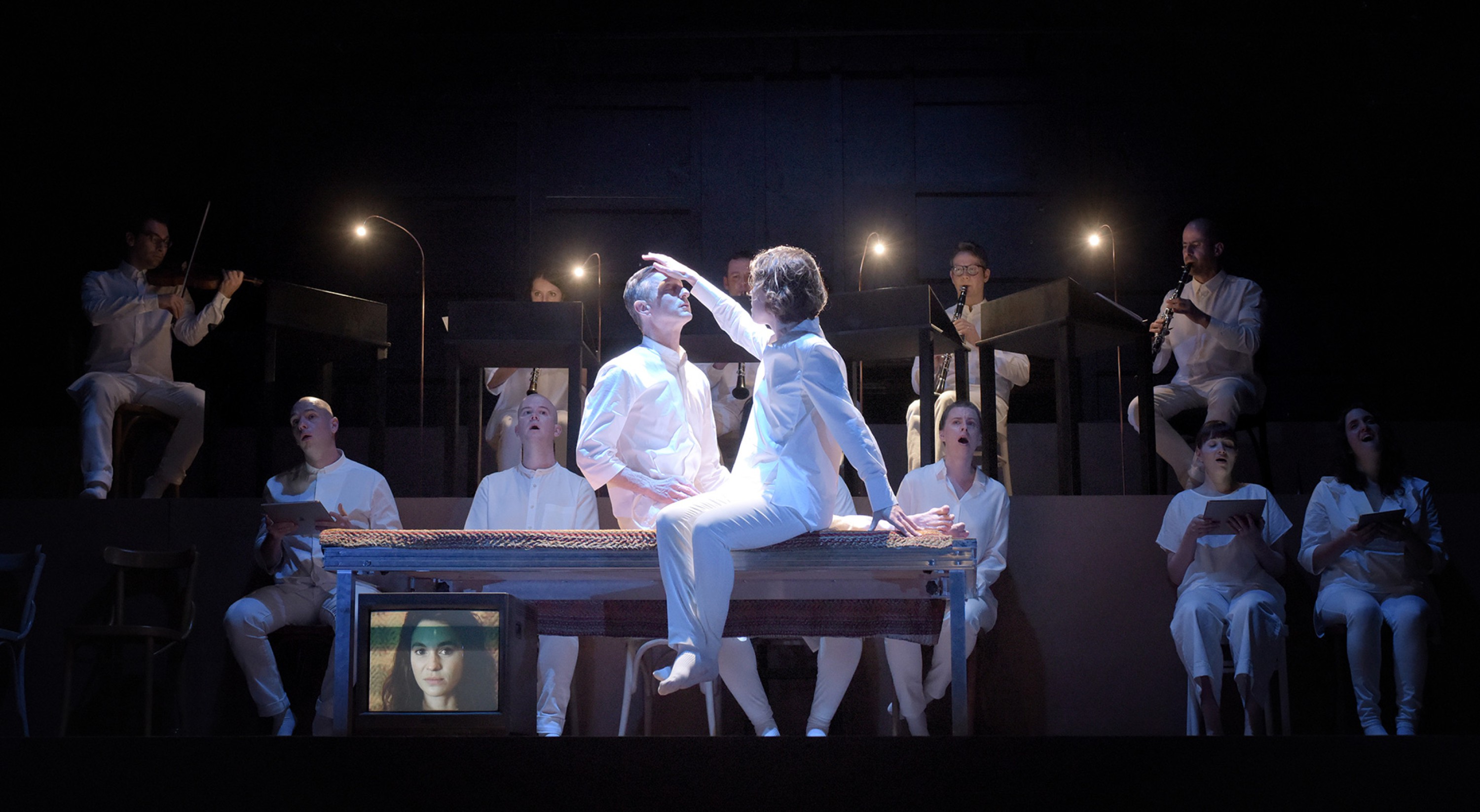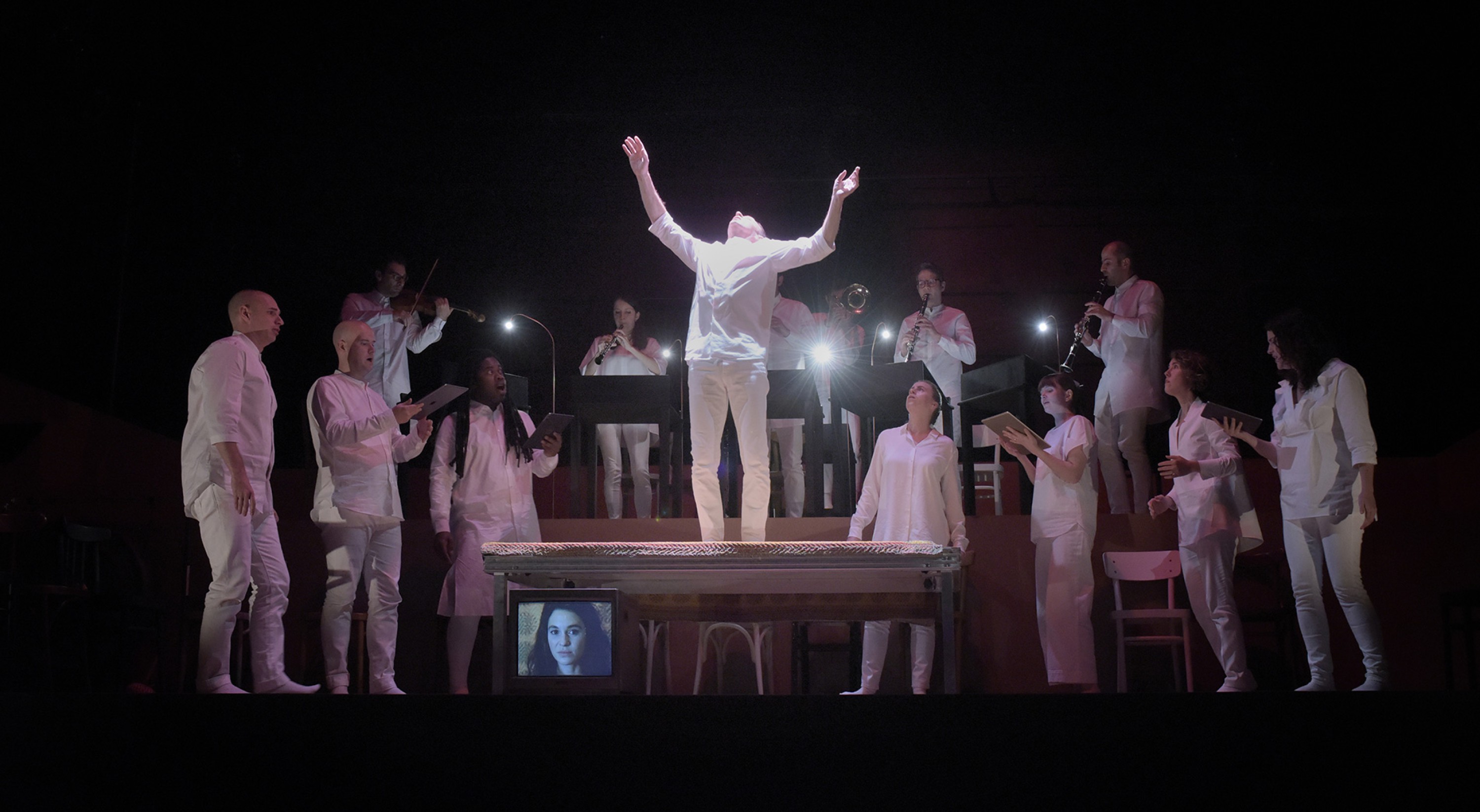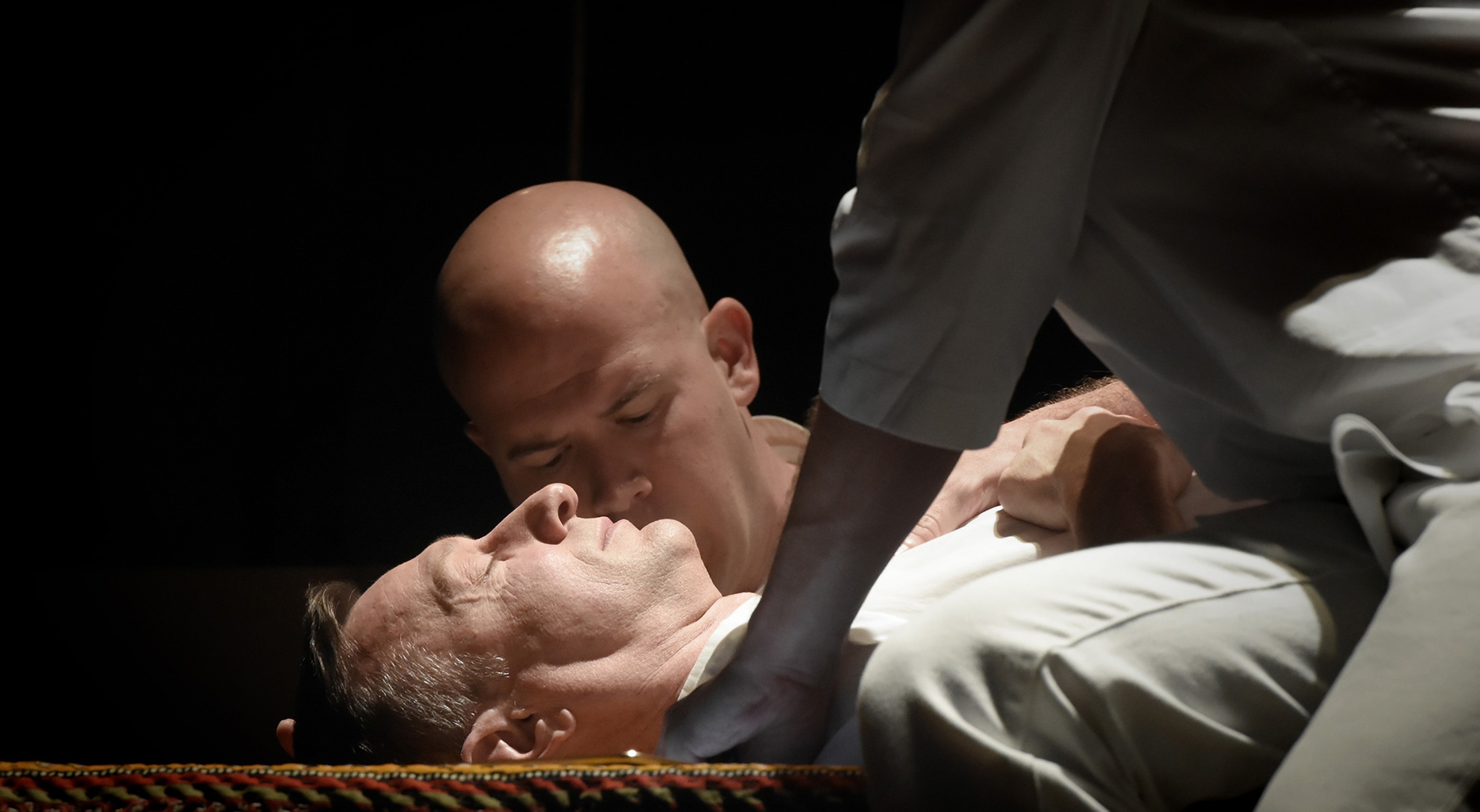Claude Vivier Peter Sellars
Kopernikus, A Ritual Opera of Death
decemberdec 4 – 8
decemberdec 17 – 19
Claude Vivier: Kopernikus – A Ritual Opera of Death (1978-79) for 7 singers, 7 instrumentalists and recorded soundtrack
Libretto by the composer (French + invented language)
Ensemble L’Instant Donné
Roomful of Teeth vocal ensemble
Eric Dudley, repetiteur
Michael Schumacher, dancer, choreographer and assistant to Peter Sellars
Antonio Cuenca Ruiz, dramaturgy
Seth Reiser, lighting
Pamela Salling, stage management
Peter Sellars, stage production
Production: Festival d’Automne à Paris
Coproduction: Théâtre de la Ville-Paris; Théâtre du Châtelet (Paris); KunstFestSpiele Herrenhausen (Hanover); Nouveau théâtre de Montreuil, centre dramatique national; Théâtre du Capitole (Toulouse)
Associate production: Théâtre de la Ville-Paris; Théâtre du Châtelet (Paris); Festival d’Automne à Paris for performances at the Théâtre de la Ville-Paris
With support from the Ernst von Siemens Foundation for Music
With support from the Canadian Cultural Centre in Paris, and from ADAMI
Concert recorded by France Musique (Radio France).
“Visionaries from all centuries, gather round!” Lewis Carroll meets Mozart. A witch meets a blind prophet or an aged monk. Merlin the Magician meets the Queen of the Night. Tristan and Isolde converse at a distance in an awe-inspiring ritual of death. The opera Kopernikus, marked with both fire and water, is one such encounter, in wonderment.
[Claude Vivier]
Copernicus, the man behind the title of the opera, brought the revolution that radically changed man’s way of seeing things, shifting from the earth to the sun and its sacred flames. Barely a few stories – for there is no dramatic conflict here, no role, merely references to mythology, fairy tales and history – but there is a dream of life, and the ceremony held when born again after death. In the quest for revelation, Kopernikus aspires to complete purification, to a pure state of mind. To achieve this, many situations are experienced: childhood and games, life, love and death, God, stars, colors and light, eternity and the laws of the seraphim, the “stagnation of temporal phenomena,” mystical birds, and the cherubim singing celestial melodies. A transition, as it were, from one form of consciousness to the other.
“As it moves through worlds from life, through death, and into new life, Vivier’s music finds a peace beyond peace, sacred rest in metaphysical action. The visionaries are arriving. We no longer need to be afraid.”
[Peter Sellars]
––––––
Running time: 1h20
In the same place



